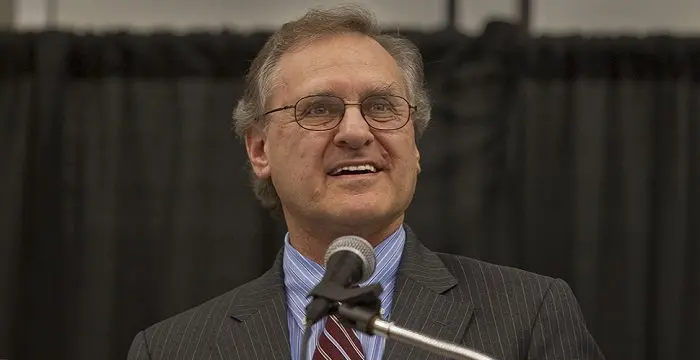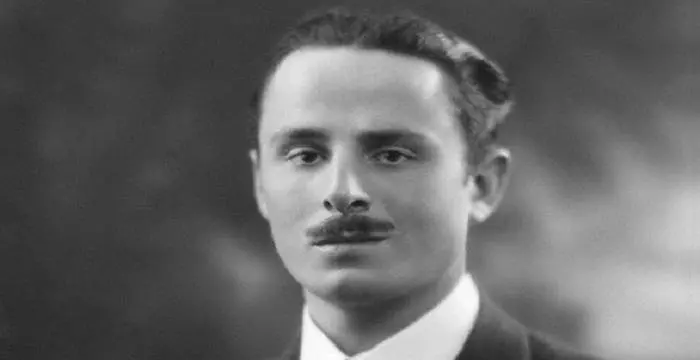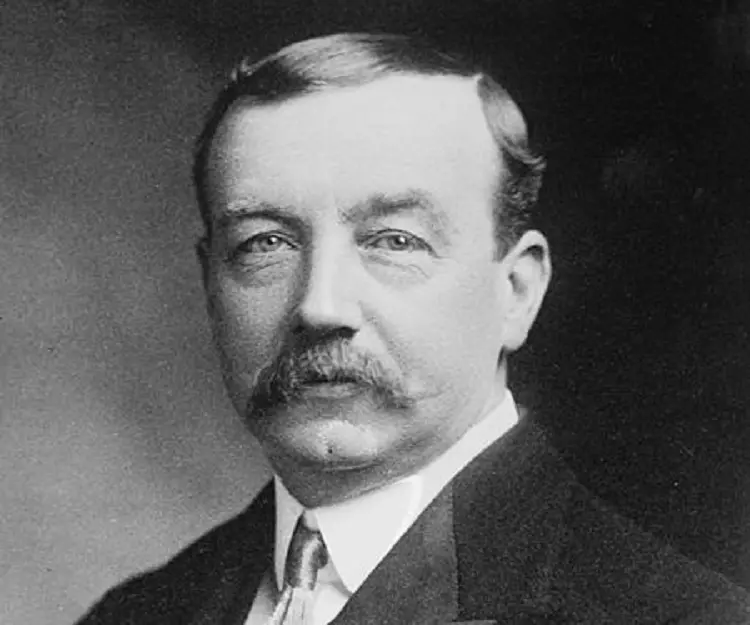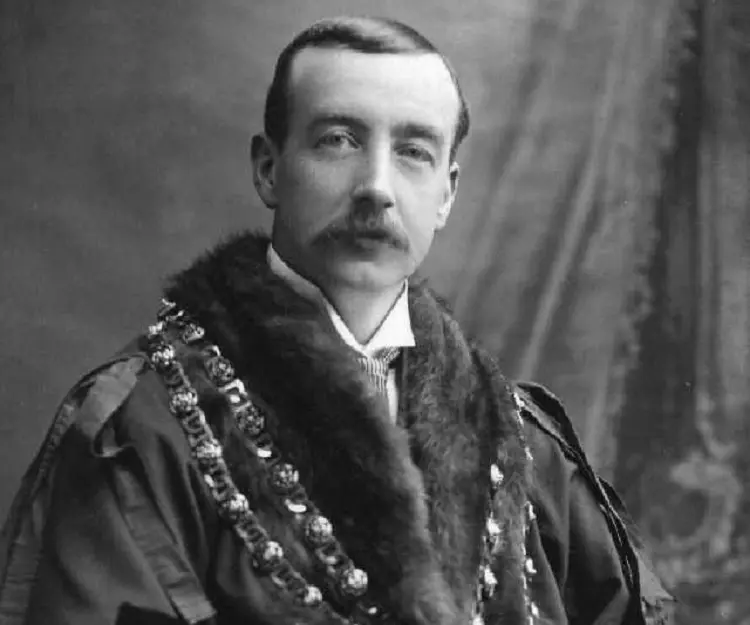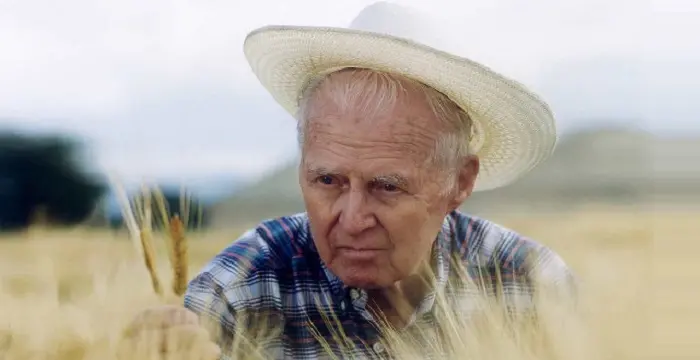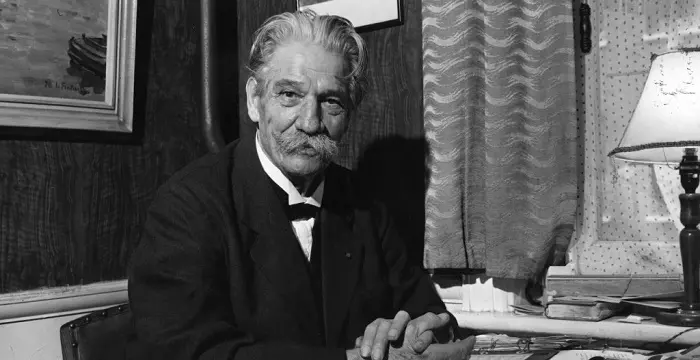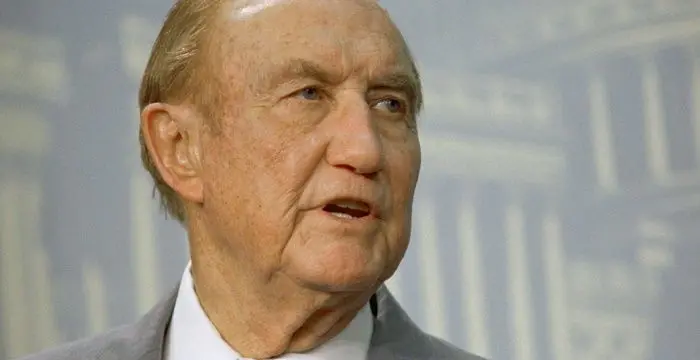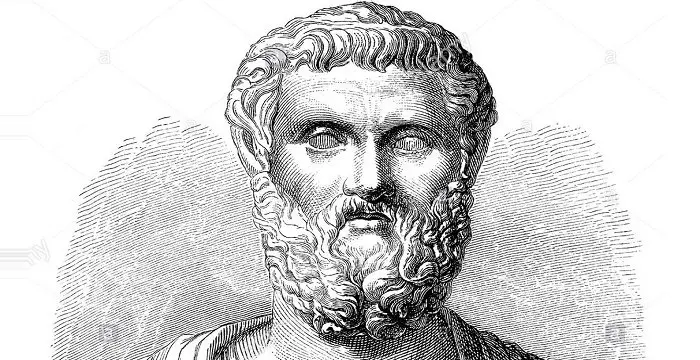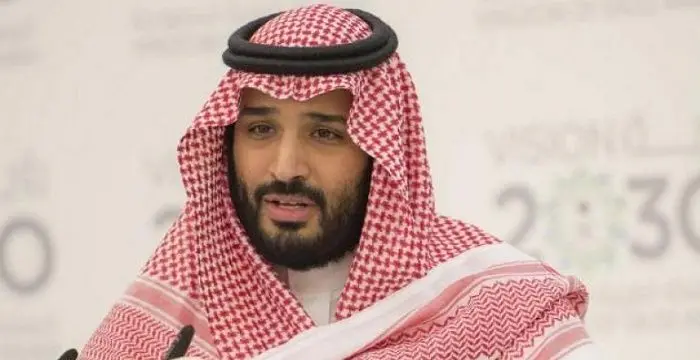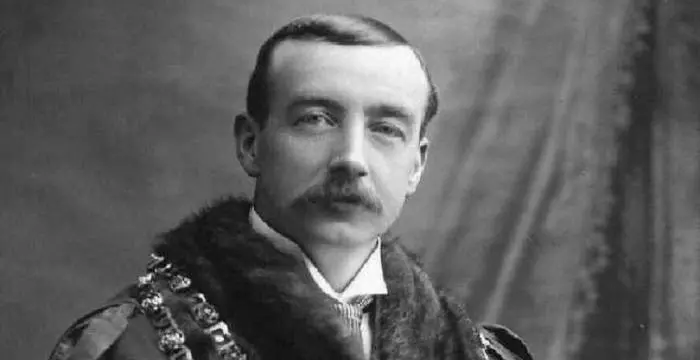
Arthur Henderson - Politician, Family and Life
Arthur Henderson's Personal Details
Arthur Henderson was a British politician who won the Nobel Peace Prize for his work for the League of Nations and its efforts in disarmament
| Information | Detail |
|---|---|
| Birthday | September 13, 1863 |
| Died on | October 20, 1935 |
| Nationality | British |
| Famous | Nobel Peace Prize, Leaders, Political Leaders, Politician |
| Known as | Хендерсон, Артур |
| Birth Place | Glasgow |
| Religion | Methodism |
| Gender | Male |
| Sun Sign | Virgo |
| Born in | Glasgow |
| Famous as | Politician |
| Died at Age | 72 |
// Famous Politician
Sebastian Coe
Sebastian Coe is a British former track and field athlete turned politician. This biography of Sebastian Coe provides detailed information about his childhood, life, achievements, works & timeline.
Stephen Lewis
Stephen Lewis is a Canadian politician, broadcaster, diplomat and professor. This biography profiles his childhood, career, works, life, achievements and timeline.
Oswald Mosley
Sir Oswald Ernald Mosley was a British politician known for his pro-fascist beliefs. This biography profiles his childhood, family, personal life, opinions, career, etc.
Arthur Henderson's photo
Who is Arthur Henderson?
Arthur Henderson was a British politician, who was one of the earliest members of the Labour Party and served multiple terms in the British Parliament in a political career that spanned several decades. Henderson was born in a working class family but he was plunged into poverty pretty early in life when his father died when he was only 10 years old. Subsequently, Henderson had to discontinue his education and work in a foundry in Newcastle, England. During his time at the foundry he developed a penchant for debate and when he grew up he became a leading member of the trade unions that eventually led to the membership of the Labour Party. Henderson was elected as a Member of Parliament by way of by elections multiple times and was also given cabinet posts when the Labour Party was able to form a government. He served as the President of the Board of Education as well as the Foreign Secretary and it was in the latter role that he became an influential voice of peace and diplomacy in an increasingly fractious European political firmament. Even after he ceased to be the Foreign Secretary, Henderson continued to work in favour of peace that eventually won him the Nobel Peace Prize.
// Famous Nobel Peace Prize
Emily Greene Balch
Emily Greene Balch was an American economist, sociologist and pacifist who won the 1946 Nobel Peace Prize. This biography of Emily Greene Balch provides detailed information about her childhood, life, achievements, works & timeline.
Norman Borlaug
Norman Borlaug was an American biologist known as the “Father of the Green Revolution”. This biography of Norman Borlaug provides detailed information about his childhood, life, achievements, works & timeline.
Albert Schweitzer
Albert Schweitzer was a German born French theologian, organist, philosopher, physician, and medical missionary. Check out this biography to know about his childhood, family life, and achievements.
Childhood & Early Life
Arthur Henderson was born on September 13, 1863, to David Henderson and his wife Agnes Henderson, in Glasgow, Scotland. His father was employed as a textile worker while his mother worked as a domestic help.
Arthur Henderson was only ten years old when his father passed away and the resulting financial strain forced Henderson to quit school and instead look for work, which he found at a photographer’s shop. Subsequently, the family moved from Scotland to Newcastle in the north of England and Henderson enrolled in a school yet again.
When Arthur Henderson was only 12 years old, he started working as an apprentice at Robert Stephenson and Sons’ General Foundry Works. Henderson tried to gain as much knowledge as possible by reading the newspapers and engaging with the other workers at the foundry.
Arthur Henderson became a local preacher in 1879 after having become a Methodist in the same year.
Career
The members of the Friendly Society of Iron Founders elected Arthur Henderson to their trade union in the capacity as a paid organiser in 1890 and although he became an active member of trade union movement; he was not in favour of frequent strikes since he did not feel that they served any purpose.
Arthur Henderson became a member of the Labour Representation Committee (LRC) in 1900. Three years later he became the treasurer of the organisation and it was in the same year that he became a Member of Parliament after winning the by election in Barnard Castle. The LRC was what came to be known as the Labour Party.
Arthur Henderson became the Leader of the Labour Party in 1908 following the untimely resignation of the Labour Party leader Keir Hardie and he continued to serve as the leader till he resigned in 1910. However, in 1914, Henderson again became the Leader of the Labour Party when Ramsay MacDonald resigned in protest against the First World War.
In 1915, Arthur Henderson was made a member of the cabinet of the British Government when he was appointed as the President of the Board of Education in H.H. Asquith’s coalition government.
In 1916, David Lloyd George replaced H.H. Asquith as Prime Minister and Henderson was appointed Minister without Portfolio in the small war cabinet. Henderson resigned as minister in 1917 after his proposal for an international conference on the war was rejected by the cabinet.
Arthur Henderson became a Member of Parliament in 1919 from Widnes again after having lost his parliament seat the previous year and subsequently functioned as the chief whip of the Labour Party for three years. After quitting his post of Chief Whip, Henderson was elected as the Member of Parliament from Newcastle East and subsequently from Burnley.
Henderson was appointed the Home Secretary in 1924 in the first-ever Labour Party government headed by Ramsay MacDonald. But his appointment was short lived as the government was defeated later on in the same year. In 1929, he became the Foreign Secretary in another Labour government and worked tirelessly in his quest to bring about peace in Europe.
Following the Great Depression, the British Parliament wanted to reduce unemployment benefits but Henderson was against it and in 1931, as a move to thwart the crisis, Ramsay MacDonald formed a government with other parties known as the National Government. The Labour Party could only muster 46 seats; Henderson lost his own seat and eventually resigned from his post as the leader of the party.
He regained his parliament seat after winning a by election from Clay Cross. Subsequently, he continued to work as an advocate of peace and was a vocal promoter of anti-war activities. He chaired the Geneva Disarmament Conference between 1930 and 1934.
Major Works
Although he was one of the most influential politicians of his time; it was his work as a peace activist that is cited as his most significant work of his career. He was also a great supporter of the League of Nations.
Awards & Achievements
Arthur Henderson won the Nobel Peace Prize in 1934 ‘for his work for the League (of nations), particularly its efforts in disarmament’.
Personal Life & Legacy
Arthur Henderson got married to Eleanor Watson in 1888. The couple had three sons and a daughter.
Henderson died on October 20, 1935 in London, England, at the age of 72.
// Famous Leaders
Edi Rama
Edi Rama is the current Prime Minister of Albania. Check out this biography to know about his childhood, life, achievements, works & timeline.
Tecumseh
Tecumseh was a Native American leader of the Shawnee clan. This biography profiles his childhood, life and timeline.
Khalifa bin Zayed Al Nahyan
Sheikh Khalifa bin Zayed Al Nahyan is the current President of the United Arab Emirates (UAE). Check out this biography to know about his birthday, childhood, family life, achievements and fun facts about him.
Arthur Henderson's awards
| Year | Name | Award |
|---|---|---|
Other | ||
| 0 | Nobel Peace Prize | |
Arthur Henderson biography timelines
- // 13th Sep 1863Arthur Henderson was born on September 13, 1863, to David Henderson and his wife Agnes Henderson, in Glasgow, Scotland. His father was employed as a textile worker while his mother worked as a domestic help.
- // 1879Arthur Henderson became a local preacher in 1879 after having become a Methodist in the same year.
- // 1888Arthur Henderson got married to Eleanor Watson in 1888. The couple had three sons and a daughter.
- // 1890The members of the Friendly Society of Iron Founders elected Arthur Henderson to their trade union in the capacity as a paid organiser in 1890 and although he became an active member of trade union movement; he was not in favour of frequent strikes since he did not feel that they served any purpose.
- // 1900Arthur Henderson became a member of the Labour Representation Committee (LRC) in 1900. Three years later he became the treasurer of the organisation and it was in the same year that he became a Member of Parliament after winning the by election in Barnard Castle. The LRC was what came to be known as the Labour Party.
- // 1915In 1915, Arthur Henderson was made a member of the cabinet of the British Government when he was appointed as the President of the Board of Education in H.H. Asquith’s coalition government.
- // 1916 To 1917In 1916, David Lloyd George replaced H.H. Asquith as Prime Minister and Henderson was appointed Minister without Portfolio in the small war cabinet. Henderson resigned as minister in 1917 after his proposal for an international conference on the war was rejected by the cabinet.
- // 1919Arthur Henderson became a Member of Parliament in 1919 from Widnes again after having lost his parliament seat the previous year and subsequently functioned as the chief whip of the Labour Party for three years. After quitting his post of Chief Whip, Henderson was elected as the Member of Parliament from Newcastle East and subsequently from Burnley.
- // 1924 To 1929Henderson was appointed the Home Secretary in 1924 in the first-ever Labour Party government headed by Ramsay MacDonald. But his appointment was short lived as the government was defeated later on in the same year. In 1929, he became the Foreign Secretary in another Labour government and worked tirelessly in his quest to bring about peace in Europe.
- // 1930 To 1934He regained his parliament seat after winning a by election from Clay Cross. Subsequently, he continued to work as an advocate of peace and was a vocal promoter of anti-war activities. He chaired the Geneva Disarmament Conference between 1930 and 1934.
- // 1931Following the Great Depression, the British Parliament wanted to reduce unemployment benefits but Henderson was against it and in 1931, as a move to thwart the crisis, Ramsay MacDonald formed a government with other parties known as the National Government. The Labour Party could only muster 46 seats; Henderson lost his own seat and eventually resigned from his post as the leader of the party.
- // 1934Arthur Henderson won the Nobel Peace Prize in 1934 ‘for his work for the League (of nations), particularly its efforts in disarmament’.
- // 20th Oct 1935Henderson died on October 20, 1935 in London, England, at the age of 72.
// Famous Political Leaders
Edi Rama
Edi Rama is the current Prime Minister of Albania. Check out this biography to know about his childhood, life, achievements, works & timeline.
Khalifa bin Zayed Al Nahyan
Sheikh Khalifa bin Zayed Al Nahyan is the current President of the United Arab Emirates (UAE). Check out this biography to know about his birthday, childhood, family life, achievements and fun facts about him.
Leo Varadkar
Cam Leo Varadkar is the current Taoiseach—the Prime Minister—of the Republic of Ireland. Check out this biography to know about his childhood, family life, achievements and other facts about his life.
Strom Thurmond
Strom Thurmond was an American politician, who represented the state of South Carolina in the United States senate for 48 years.
Solon
Solon was an Athenian lawmaker, poet and politician. He is considered as one of the ‘Seven Wise Men’ in Greek culture. This biography provides detailed information about his childhood, life, career, works, achievements and timeline.
Mohammed bin Salman
Mohammed bin Salman is the Crown Prince of Saudi Arabia and the heir apparent to the throne. Check out this biography to know about his childhood, family life, achievements and other facts about him.
Arthur Henderson's FAQ
What is Arthur Henderson birthday?
Arthur Henderson was born at 1863-09-13
When was Arthur Henderson died?
Arthur Henderson was died at 1935-10-20
Where was Arthur Henderson died?
Arthur Henderson was died in London
Which age was Arthur Henderson died?
Arthur Henderson was died at age 72
Where is Arthur Henderson's birth place?
Arthur Henderson was born in Glasgow
What is Arthur Henderson nationalities?
Arthur Henderson's nationalities is British
What is Arthur Henderson's religion?
Arthur Henderson's religion is Methodism
What is Arthur Henderson's sun sign?
Arthur Henderson is Virgo
How famous is Arthur Henderson?
Arthur Henderson is famouse as Politician

